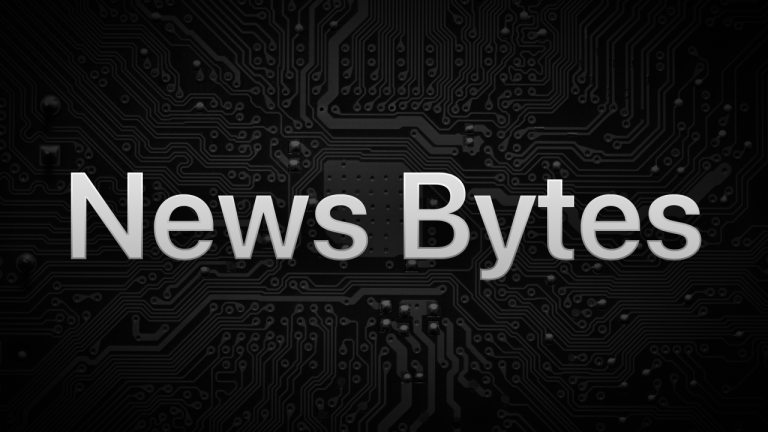 The Supreme Court of Georgia, the highest judicial authority of the U.S. state of Georgia, has disbarred attorney Diana McDonald on June 11 for misappropriating $4 million from a bitcoin escrow transaction. In 2019, McDonald acted as a fiduciary for a client involved in a Bitcoin deal that failed to deliver the promised cryptocurrency. Despite […]
The Supreme Court of Georgia, the highest judicial authority of the U.S. state of Georgia, has disbarred attorney Diana McDonald on June 11 for misappropriating $4 million from a bitcoin escrow transaction. In 2019, McDonald acted as a fiduciary for a client involved in a Bitcoin deal that failed to deliver the promised cryptocurrency. Despite […]
Ripple’s chief legal counsel is calling out what he says are childish antics from the U.S. Securities and Exchange Commission (SEC) as regulators continue to target crypto assets. In a new thread on the social media platform X, attorney Stuart Alderoty says Binance’s recent regulatory woes are a “necessary step” to bring the digital assets […]
The post Ripple Chief Legal Counsel Details ‘Juvenile Behavior’ From SEC Amid Anti-Crypto Enforcement Actions appeared first on The Daily Hodl.
 Court documents reveal that Justin Sun, Tron’s founder, has been sent a summons from the U.S. Securities and Exchange Commission (SEC) regarding the civil complaint filed against him last month. Youtuber Austin Mahone and rapper Soulja Boy, whose real name is DeAndre Cortez Way, have also been summoned. The SEC accuses Sun of orchestrating an […]
Court documents reveal that Justin Sun, Tron’s founder, has been sent a summons from the U.S. Securities and Exchange Commission (SEC) regarding the civil complaint filed against him last month. Youtuber Austin Mahone and rapper Soulja Boy, whose real name is DeAndre Cortez Way, have also been summoned. The SEC accuses Sun of orchestrating an […]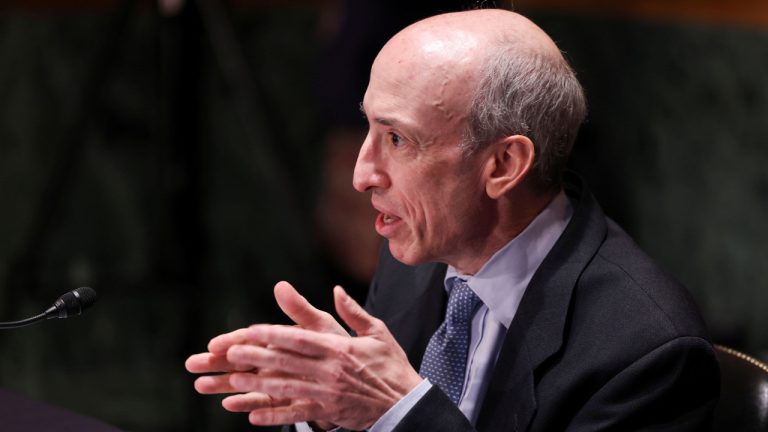 Recently, Gary Gensler, the chairman of the U.S. Securities and Exchange Commission (SEC), expressed his opinion in a detailed interview with New York Magazine’s Intelligencer regarding why he believes crypto assets other than bitcoin are securities. However, Stuart Alderoty, Ripple’s chief legal officer, argues that Gensler must “recuse himself from voting on any enforcement case […]
Recently, Gary Gensler, the chairman of the U.S. Securities and Exchange Commission (SEC), expressed his opinion in a detailed interview with New York Magazine’s Intelligencer regarding why he believes crypto assets other than bitcoin are securities. However, Stuart Alderoty, Ripple’s chief legal officer, argues that Gensler must “recuse himself from voting on any enforcement case […]
Sam Bankman-Fried is, for the most part, still able to freely access the internet through various devices. Prosecutors want to change that.
Sam Bankman-Fried, the former CEO of crypto exchange FTX, may no longer be able to play League of Legends and other video games if newly proposed changes to his bail conditions from United States prosecutors are approved.
In a Feb. 15 letter to United States District Judge Lewis Kaplan, U.S. Attorney Damian Williams asked the court to further expand restrictions surrounding Bankman-Fried’s electronic device usage.
They pointed to Bankman-Fried’s recent device usage as cause for concern, and agreed with the court’s intuition that it was “shortsighted” to focus only on restricting the use of apps, adding:
“There is now a record before the Court of a defendant who appears motivated to circumvent monitoring and find loopholes in existing bail conditions. The appropriate course, therefore, is broader restrictions on the defendant’s cellphone, tablet, computer, and internet usage, with limited exceptions.”
The prosecutors propose that Bankman-Fried should be prohibited from using cellphones, tablets, computers, or the internet, except for very limited uses such as reviewing pre-trial evidence, communicating with lawyers and accessing emails.
Here’s the list of proposed new bail restrictions that SBF is going completely ignore, without any real consequences https://t.co/cMVCdmRAj3
— Sean Tuffy (@SMTuffy) February 15, 2023
He would be restricted to using a single computer and cell phone, which in addition to his Gmail account would be monitored using a “pen register” — a device or process that essentially produces a list of phone numbers of internet addresses contacted from a specific source.
Bankman-Fried is understood to be an avid gamer, having reportedly played online video games such as League of Legends during fundraising rounds while at FTX.
Bankman-Fried also mentioned during an interview with New York Times on Nov. 13 that he likes to play games, as it helps him “unwind a bit” and clear his mind.
Under the newly proposed bail conditions, it appears that Bankman-Fried will no longer be allowed to partake in the activity.
Related: Judge allows release of identities of guarantors behind Sam Bankman-Fried’s bail
Earlier this month, the former CEO was prohibited from using encrypted messaging apps after he was found to have contacted potential witnesses in his criminal case.
He has also been temporarily banned from using VPNs on Feb. 14, after the Justice Department discovered he had used a VPN on two different occasions — in order to watch sports coverage. This ban will be further discussed during a Feb. 16 hearing.
Many from the crypto community were disgusted by the initial conditions of Bankman-Fried’s bail, which required him to wear an ankle bracelet but afforded him full computer and internet access from his parents luxurious home in sunny California.
SBF will be spending Christmas at home with his parents playing video games rather than locked up in a cell. What kind of justice is that?
— Layah Heilpern (@LayahHeilpern) December 23, 2022
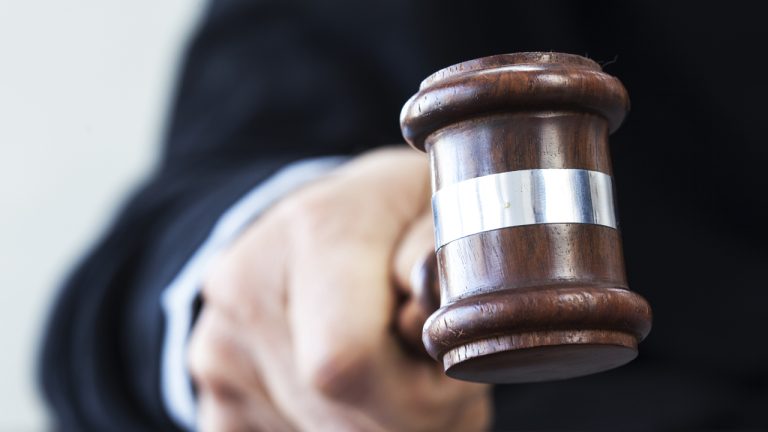 The judge presiding over the FTX bankruptcy case has denied the U.S. Trustee’s request to appoint an independent examiner for the ongoing proceedings. The decision comes after judge John Dorsey postponed the ruling last week, citing concerns that the examiner could cost creditors tens of millions of dollars. The U.S. Trustee’s Argument for an Independent […]
The judge presiding over the FTX bankruptcy case has denied the U.S. Trustee’s request to appoint an independent examiner for the ongoing proceedings. The decision comes after judge John Dorsey postponed the ruling last week, citing concerns that the examiner could cost creditors tens of millions of dollars. The U.S. Trustee’s Argument for an Independent […]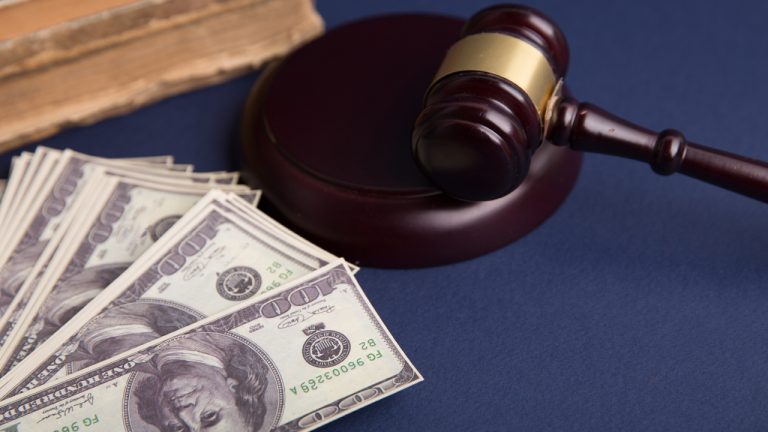 Judge John Dorsey has delayed his decision on whether to appoint an independent examiner in the FTX case. At the latest hearing, Dorsey acknowledged that the cost to debtors could reach tens of millions of dollars. Currently, the bankruptcy judge is hopeful that the issue will be resolved through a mutually agreed upon solution between […]
Judge John Dorsey has delayed his decision on whether to appoint an independent examiner in the FTX case. At the latest hearing, Dorsey acknowledged that the cost to debtors could reach tens of millions of dollars. Currently, the bankruptcy judge is hopeful that the issue will be resolved through a mutually agreed upon solution between […]
Randall Crater was ordered to pay back the millions lost by victims of his fraudulent crypto scheme and spend 100 months in jail followed by a three-year supervised release.
Founder of “My Big Coin” Randall Crater has been sentenced to 100 months in prison and ordered to pay over $7.6 million to the victims of his fraudulent scheme.
The U.S. Department of Justice said on Jan. 31 that Crater was sentenced by United States District Court Judge Denise Casper in Massachusetts.
The sentence comes after Crater was convicted by a federal jury on July 21 on four counts of wire fraud, three counts of unlawful monetary transactions and one count of operating an unlicensed money-transmitting business.
Randall Crater, the founder of "My Big Coin," a purported cryptocurrency company, was sentenced today to more than eight years in federal prison for a multi-million dollar fraud scheme uncovered by #FBI Boston and @USPIS_BOS. https://t.co/567NYPndRU pic.twitter.com/a3eKaogij4
— FBI Boston (@FBIBoston) January 31, 2023
My Big Coin was founded by Crater in 2013 and falsely marketed as a cryptocurrency payment service, luring victims between 2014 and 2017.
Crater claimed the coins on My Big Coin were fully functional cryptocurrencies backed by gold and that the platform had a partnership with Mastercard.
Crater also marketed the “My Big Coin Exchange,” advertised as a crypto exchange where the coins could be swapped for U.S. dollars and other fiat currencies.

A significant portion of the $7.6 million obtained by Crater and his marketing team went toward a house, several cars and over $1 million in antiques, artwork and jewelry.
U.S. Attorney Rachael Rollins said in a statement the damage done by Crater inflicted a serious amount of trauma and financial hardship on his victims:
“For nearly four years, Mr. Crater perpetrated a brazen fraud scheme that preyed on investors and customers who put their faith in him and his fake business, resulting in victim losses of over $7.5 million.”
“His lies and deception inflicted real trauma, pain and hardship on the lives of 55 individual victims and their families who funneled their money into bank accounts Mr. Crater controlled and used to finance his extravagant lifestyle,” she added.
Related: 800 victims of ‘massive’ Bitconnect fraud to receive $17M restitution
Even after his conviction, Crater continued to protest his innocence, stating in an Oct. 21 YouTube video that a My Big Coin credit card did in fact exist and claiming that an investor testified under oath to having used the card multiple times.
Legal action against Crater dates back to Sept. 25, 2018, when now-former Judge Rya Zobel of the Massachusetts District Court ruled against a motion to dismiss a case launched by the U.S. Commodity Futures Trading Commission (CFTC).
The Department of Justice officially filed criminal charges against Crater on Feb. 19, 2019.
After Crater’s 100-month tenure behind bars, he will be subject to a supervised release for the following three years.
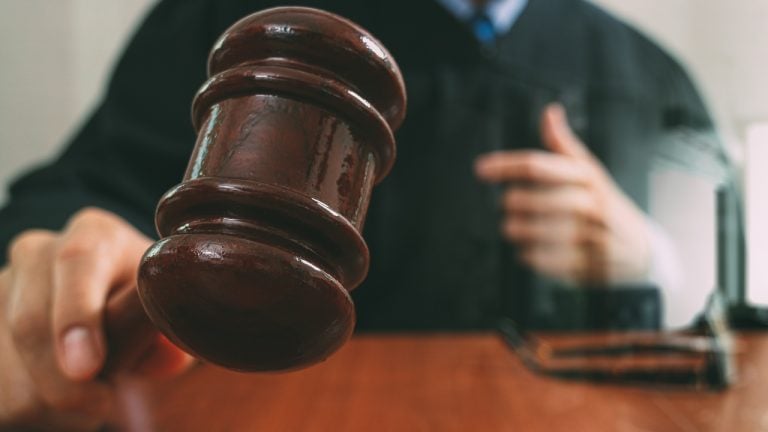 On Friday, bankruptcy judge John Dorsey approved the law firm Sullivan & Cromwell (S&C) to be appointed as the debtors’ counsel for FTX, despite an objection from Daniel Friedberg, a former FTX US compliance officer. During a Zoom presentation, Friedberg claimed there was a conflict of interest between former and current FTX executives and FTX […]
On Friday, bankruptcy judge John Dorsey approved the law firm Sullivan & Cromwell (S&C) to be appointed as the debtors’ counsel for FTX, despite an objection from Daniel Friedberg, a former FTX US compliance officer. During a Zoom presentation, Friedberg claimed there was a conflict of interest between former and current FTX executives and FTX […] After more attention has been cast on the former Alameda Research CEO Caroline Ellison, a report details that Ellison has hired Wilmerhale partner Stephanie Avakian, an attorney that worked for the U.S. Securities and Exchange Commission (SEC). The news follows leaked documentation of Ellison’s alleged margin position, and the ex-Alameda executive reportedly being spotted at […]
After more attention has been cast on the former Alameda Research CEO Caroline Ellison, a report details that Ellison has hired Wilmerhale partner Stephanie Avakian, an attorney that worked for the U.S. Securities and Exchange Commission (SEC). The news follows leaked documentation of Ellison’s alleged margin position, and the ex-Alameda executive reportedly being spotted at […]